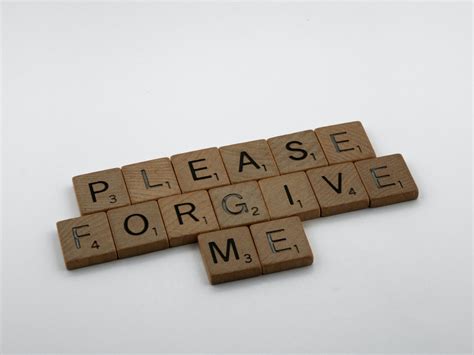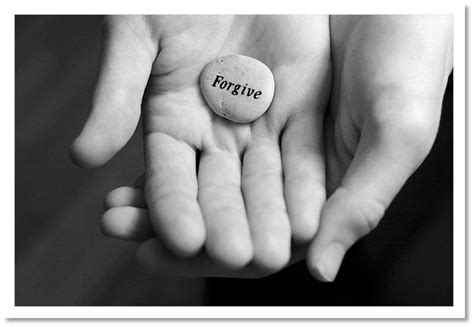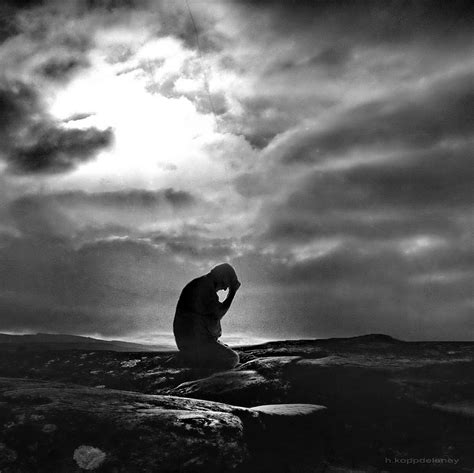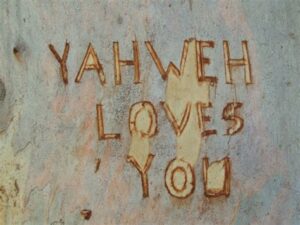The Heart of Forgiveness
In the Book of Exodus the Pharaoh of Mitsrayim, or Egypt, found himself in need of forgiveness.
Following a hailstorm the likes of which Egypt had never seen before, a plague of locusts finished the job and devoured whatever food was left in the land. Pharaoh admitted that he had sinned against Yahweh and against Moshe, or Moses, and asked that Moses pray so that the true Almighty would “take this death from me only.”
But what does it really take to be forgiven? What is mercy and why is it more important than sacrifice? Why would Yahweh forgive some who ask for forgiveness and not others? We will attempt to answer these questions, and perhaps our answers will lead to more questions.
Forgive and You Shall Be Forgiven
Most of us find it relatively easy to forgive the small slights and insults passed against us. Accidents happen and usually we are able to look past the injury, sometimes even a dreadful one, to the lack of bad intention and let it go.
Admittedly there are some people who don’t seem to be able to give any kind of forgiveness for anything, so matter how small a matter. But we are made in the image of Yahweh and thankfully this is a rare, hardened, personality.
For the rest of us an unintentional insult or injury is not something to hold onto and we can often let one roll of our backs.
But what do we do in the case of willful harm inflicted on us? What if there are indeed bad intention? What if the offending person meant full well to hurt you? Well, forgiveness in this case is another matter entirely, and yet as believers in Yeshua of Nazareth we are required to forgive anyway.
The Right Prayer
Jesus Christ, whose name in His native Hebrew is Yeshua, taught His disciples how to pray. While praying may seem like a straightforward concept the simplicity and humility of His model prayer informs us clearly of what Yeshua desires of us and the things we should ask for.
Nowhere in His model prayer does Yeshua ask for a Mercedes Benz. He doesn’t ask for prosperity or money, or even for His bills to be paid on time.
It’s true that paying bills and responsibility are good. Prosperity is a good thing. Money is not in itself a bad thing. Luxuries, for those to whom Yah has given them, are a gift and should be appreciated and perhaps shared. However in His model prayer, which we are to follow as our own rubric, Yeshua asks only for things which might seem scandalous to certain of the mainline denominations popular today.
Our Father in Heaven, hallowed be your Name
Your Kingdom come, Your will be done on Earth as it is in Heaven
Give us day by day our daily bread.
And forgive us our sins, for we also forgive those who are indebted to us.
And do not lead us into temptation but deliver us from the evil one. Luke 11:2-4
In this prayer we find no request for physical riches or health, only humility. Great is the Name of Yahweh. His will be done on Earth as it is in Heaven. Please give us our bread day by day, for that is what we require to do His work in the land.
A phrase I sometimes repeat when I pray this prayer, is the next line. My history is so odd and seems to me to be so wicked, though the wickedness was rarely intentional, that I feel the need to beg forgiveness. And within this snippet of the Master’s Prayer I see clearly the key to forgiveness, which is confirmed by numerous witnesses throughout Scripture. Forgive us our sins, as we also forgive those indebted to us. We are forgiven only because we forgive.
As an aside, you do not need to have bad intentions toward Yahweh or His people to do great harm. Thoughtlessness, or rather living without proper intention toward His people can do plenty. Bad intentions toward people who most people would agree deserve bad intentions can easily do much more damage than good. Living intentionally, with righteous intentions, and asking Him for direction will help you avoid costly missteps and calamities alike.
Forgive, and You Will Be Forgiven

A believer can believe and still find no mercy from the Heavenly Father. How so?
Judge not and you shall not be judged: Condemn not and you shall not be condemned: forgive and you shall be forgiven: Give and it shall be given to you; good measure, pressed down and shaken together, and running over, shall men give into your bosom. For the same measure which you measure, it will be measured back to you. Luke 6:37-38
If these things are true, which they are, then the converse is also true. If you judge others unrighteously or condemn them for the same things you yourself are guilty of then you will be judged and condemned. Additionally if you forgive you shall be forgiven. But if you do not forgive others their trespasses neither will your Heavenly Father forgive you. Matthew 6:14-15
So often we find ourselves far away from Yeshua, even when we are trying our best to be near to Him. This is one remedy for a simple, but often overlooked problem. Nearly all of the disasters in my life were caused by my own unforgiveness. That is likely the case for many of you as well.
And whenever you stand praying, if you have anything against anyone, forgive him, that your Father in Heaven may also forgive your trespasses. But if you do not forgive, neither will your Father in Heaven forgive your trespasses. Mark 11: 25-26
No Forgiveness?
We are not designed to live in unforgiveness. It’s bad for the body and stressful. Unforgiveness may or may not punish the one you choose not to forgive, but it certainly punishes you and those who love you. Once bitterness creeps in it is very difficult to make an attitude sweet again. By the Ruach ha Kodesh, the Holy Spirit of Yah, this is possible, certainly. But why wait for relief if you know that unforgiveness is sinful and results in no forgiveness being possible for even a believer?
Those who are not typically merciful are also not typically forgiving. Mercy requires a softness, a tender heart willing to see pain, fear or suffering in the eyes of someone who is enduring it, and then empathy to place oneself in their position.
If a person has wronged you or someone else, perhaps they are sorry. Maybe not, but it’s quite possible that they are. The Messiah made no distinction, though, and interceded for those who were actively executing Him.
When Yeshua called Matthew the tax collector to follow him He soon met with other tax collectors and sinners, and worse yet He ate with them at the table. The Pharisees were offended, naturally, and asked why He did that. As usual His answer was breathtakingly profound and yet so simple that any child could understand it.
Healthy people don’t need a doctor. Sick people do.
Then He said “Go and learn what this means, “I desire mercy and not sacrifice.” For I did not come to call the righteous, but sinners to repentance.” Matthew 9:13
Yeshua was quoting Hosea 6:6. The rest of the sentence, which isn’t recorded in Matthew, says “For I desire mercy, not sacrifice, and the knowledge of Elohim more than burnt offerings.”
For Yeshua, a wandering preacher without formal schooling, to instruct the self righteous Pharisees to go learn about the book of Hosea would have been a stinging rebuke. Sacrifice was a way of life for the teachers of Judah. Fasting, tithing of mint, cumin and of everything else they gained was a source of pride. Pride is the antithesis of the intention Yah gave us for tithing.
Why the Animal Sacrifice?
Perhaps the notion of the sacrificial system in general was foreign to them. To give something up to Elohim is good, however why would an innocent life be required in order to accomplish it? Why would forgiveness require death?
This is not an idea found in Scripture to my knowledge, and is only the opinion of this author. But when your forgiveness was required and a sacrifice at the Temple was necessary, would it have occurred to you that an entirely innocent life was about to be ended for the remission of your sins? Would you look with compassion at the animal and realize the enormity of what it had to give up for you to be forgiven, or would you simply think of the price you paid for the animal?
I don’t believe Yahweh is bloodthirsty or has any need whatsoever of burning meat on an altar. My thought is that the one who is offering the sacrifice should understand just how precious his forgiveness really is. They would understand another being’s life was required. The lamb, the shadow of that true life given for our sins, was the foretelling picture of the Messiah of Israel and the whole world, Yeshua of Nazareth.
Have You Considered the Cost?
Do you consider the cost of Yahweh’s mercy for yourself? Do you realize when you ask for forgiveness that the Son of Elohim died a gruesome, humiliating death as an innocent man for the remission of your sins?
Rather than seeing the physical manifestation of a lamb being slain and offered to Elohim as if He were hungry and needed sustenance, perhaps the best way to look at the sacrificial system is as nothing more than a future reminder. Participation in the Temple sacrifice was a dress rehearsal for the true sacrifice of Yeshua.
Imagine. Buy the animal, or raise it. Look at that animal and understand its future. Look it in the eyes and realize that soon it will die, having done no wrong, because you are a sinner. Along the journey to the Temple maybe you could consider the end of this innocent creature, and moreover consider that the animal is taking the walk that you and I should take. As you lead it and hand it over to the priest would you take a last look and understand that that lamb or goat or bull or bird was taking your place?
Do you consider the place that Yeshua took for you? Do you understand the cost of mercy, and thus forgiveness?
If you can understand that cost then perhaps you can understand the “knowledge of Elohim,” and just how badly He wants to be merciful. But mercy, and thus forgiveness, comes at a staggering cost.
Why No Forgiveness for Pharaoh?
Clearly the Pharaoh of the exodus was not forgiven, though he did admit his wrong to Moses and asked Moses to pray to Yahweh to forgive him. Why was Pharaoh not forgiven?
To my understanding Pharaoh was not sorry. The hard-hearted Pharaoh was not interested in Yahweh or His ways. He wasn’t repentant, he did not care that he was in rebellion against the one true Elohim. Pharaoh only wanted to get Yahweh off his back.
Change was not in the heart of Pharaoh. Turning from wickedness was never part of the deal. Humility and being face down before the Almighty was not what Pharaoh was thinking about. He was thinking about his kingdom, and more likely the unpleasant ramifications of an entire nation without any food for an entire growing season and how that might affect him in the near future.
Motives
Pharaoh was not sorry for offending Yahweh. He was sorry because he was faced with an insurmountable problem and no way to fix it. He was not sorry enough, however, to recognize the hand of Yahweh and to bow to Him in reverence and humility. Instead he asked to get Yahweh off his case so he could go on about his business, and if necessary he would negotiate with Moses about whom and how many could go into the wilderness to pray.
This was not an example of repentance. King David sinned greatly, but his sorrow for his sin nearly broke him. He confessed his sins, turned from his wickedness and never did it again. David was forgiven because he was genuinely sorry for his sin against Yahweh, and not only because the hand of the Almighty was heavy on him. There is a distinct difference, and David received a different treatment than Pharaoh as well as his predecessor king Saul.
Sorry you got caught is not the same as sorry for dishonoring Yahweh and His people.
Forgiveness Is In Your Hands

To forgive as a man means to know that you are every bit as capable as your opponent of doing the same evil deeds and choosing to identify with and be merciful to that person. Only humility can make a person realize they are no better than their offender.
Pharaoh probably saw the Israelites as the source of his problems, and specifically Moses. More specifically he likely blamed Yahweh, rather than standing in awe of Him. While Moses did no wrong to him, Pharaoh wasn’t likely to identify this meddling Hebrew or with his Hebrew slaves or forgive them for the perceived dishonor they were doing him. He could not conceive of forgiveness because Yahweh hardened his heart.
Yahweh hardened Pharaoh’s heart, not because He didn’t like him, but because Pharaoh was a cruel slave driver with a heart as hard as the bricks he demanded already. He further hardened Pharaoh’s already flinty heart, and in the process He demonstrated great fidelity and mercy for the oppressed which has never been forgotten to this day.
Yahweh Delights in Mercy and Forgiveness
Stephen, the first martyr, prayed to the Father in his dying moment and asked that the charges for his murder not be laid on those who threw stones.
Yeshua, on the cross, asked His Father to forgive those who were killing Him. They promptly cast lots and divided His clothes. Still He interceded for them.
Forgiveness does not imply that we have no duty to defend ourselves or our families. It does not imply that we are to remain chained to abusive, unrepentant people. Forgiveness does not mean that allow ourselves to be hurt repeatedly or that we are to be pacifists. I believe pacifism in all situations is an unscriptural doctrine, and that self defense is not a very controversial Scriptural issue. I think it’s quite clear we are allowed to defend in the proper circumstances.
Forgiveness simply means we do not allow bitterness to take root in our hearts, but we allow Yahweh to handle the situation as He sees fit. We forgive them their trespass, even if we don’t necessarily forget.
This is wisdom which I have only relatively recently acquired and it is not my place to decide for you what you should do in a desperate or dangerous situation. You should certainly pray for guidance now so when the time comes your mind and heart are already set on what you believe is right, according to the Scriptures.
You will only know what is right by prayer and reading the Scriptures for yourself.
He Wants to Forgive
Yahweh wants to forgive you. He wants you to turn to Him and be saved. He gave His only begotten Son in exchange for the forgiveness of our sins, which He Himself never committed. Yeshua was a spotless Passover Lamb, and by His blood we are passed over for judgement.
That selfless sacrifice should induce you to consider the cost of that forgiveness, the very life of the Messiah Yeshua. In considering what was paid for you, we must also consider that if we are not willing to do the same to someone else then why should we be forgiven?
However if we are willing to forgive, and we are willing to ask Him forgiveness then Yahweh is faithful and just to forgive us our sins, and to cleanse us from all unrighteousness.
The Hebrew understanding of faith requires not only an understanding in the mind, but action.




